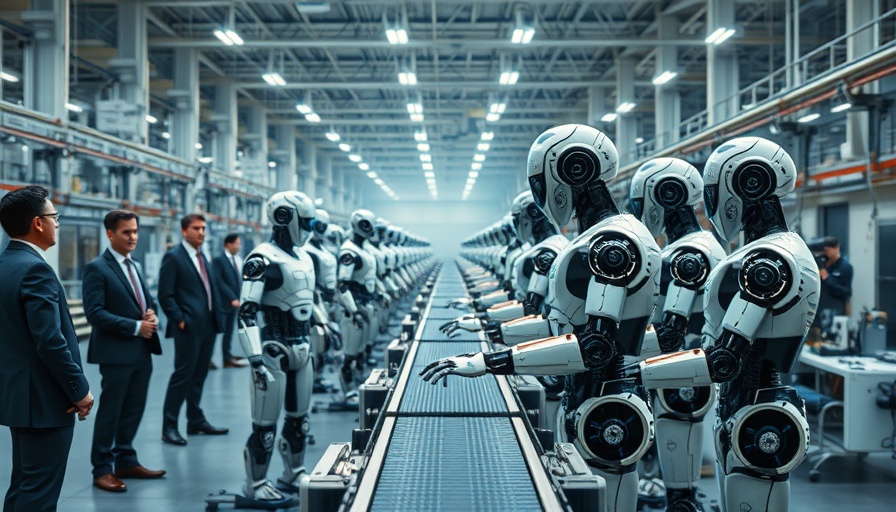
Emerging Trends in Autonomous AI Development
Recently, Emergence AI has unveiled a groundbreaking platform that enables AI agents to autonomously create other AI agents, significantly accelerating productivity and efficiency across various sectors. This innovation introduces a paradigm shift in artificial intelligence, where users can define tasks through natural language prompts without needing technical expertise in programming.
Harnessing Recursive Intelligence for the Future
Central to Emergence AI's platform is the concept of recursive intelligence, where AI systems are designed to enhance themselves over time without human intervention. Co-founder and CEO Satya Nitta emphasizes that this capability allows AI to innovate continuously within the parameters set by human users, thereby scaling creativity and intelligence effectively. The process initiates by assessing existing capabilities and only developing new agents when necessary, ensuring an efficient allocation of resources.
Practical Applications and Benefits of Multi-Agent Systems
The platform is tailored for a multitude of applications, particularly in data-intensive environments. Capabilities include automating data extraction, transaction processing, and loading pipeline creations. Additionally, it aims to refine generative AI coding—a space known for frequent errors—by enabling autonomous agents to not only generate code but also verify and rectify mistakes. As Nitta describes, this “agentic coding” can revolutionize software development over the next few years, integrating extensive oversight features and safeguards to maintain functionality and security.
Real-Time Adaptability and Interoperability
Another critical feature of Emergence AI’s platform is its real-time adaptability. The AI agents can proactively create additional ones based on prior interactions, significantly enhancing predictive capabilities. Users also benefit from the flexibility of choosing from several large language models (LLMs) such as OpenAI's GPT-4 and Anthropic's Claude, promoting interoperability that allows existing enterprise models to be integrated seamlessly into the workflow. This adaptability ensures businesses can scale their automation efforts without being restricted to a single technological solution.
Targeted Industries and Future Implications
Emergence AI is poised to impact a range of industries from finance to healthcare, where AI agents can streamline operations, improve accuracy, and reduce costs. The combination of agentic AI and recursive intelligence suggests a future where companies can achieve unprecedented efficiencies. As organizations look to automate routine tasks and leverage AI for complex problem-solving, Emergence AI's platform could set a new standard for how businesses engage with technology. Nitta’s vision encapsulates a forward-thinking approach that prioritizes human input while maximizing AI's potential.
Conclusion: Embracing the AI Revolution
As we continue to explore the dynamics of AI technology, Emergence AI’s innovations underline a critical juncture in artificial intelligence development. The transition toward agentic AI fosters a new era where intelligent systems can both support human capabilities and operate autonomously in real-time. Keeping abreast of these developments not only prepares businesses for the future but also positions them at the forefront of the AI revolution.
 Add Row
Add Row  Add
Add 




 Add Row
Add Row  Add
Add 

Write A Comment